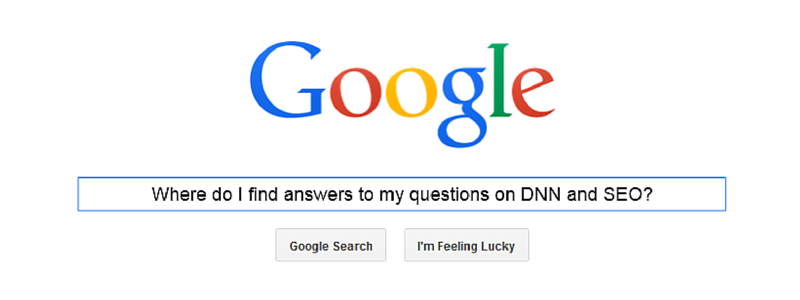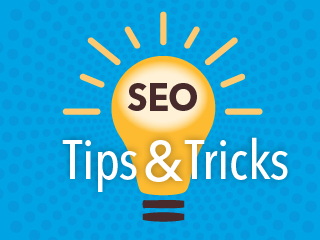
Recently, I presented a webinar, “24 Tips & Tricks to Improve Your Website’s SEO.” I received a mix of questions: some general SEO questions and some related specifically to DNN and Evoq. In this post, I’ll address the DNN-specific questions that I wasn’t able to answer during the webinar.
Before you read through the Q&A, have a look at the slides from the webinar:
24 Tips and Tricks to Improve Your Website's SEO from DNN
Q&A on DNN and SEO
How does DNN handle SEO pagination issues?
In terms of structured data, there are a few places in the product where pagination is used in public-facing content. Using structured data for paged values (for pagination) will be in an upcoming release.
How can I do a 301 redirect for pages having special characters in the URL?

(Additional comment on the question: “DNN removes special characters from the URL’s when renaming.”)
You don’t want to have special characters in the URL, unless you’re creating a localized version of the URL. In those cases, if you can’t get the result you like, it’s always possible to directly update the URL value in the database.
This method is for advanced use only and should be tested extensively to ensure the results are as expected. DNN removes special characters in order to build friendly URL’s that index well.
We publish a few articles, blogs and press releases per day in DNN. What is the one thing we should never forget to do with regard to SEO?
Ensure that each blog, article and press release has a unique title, description and URL. These attributes should contain the key terms related to the content. Make sure your blog post has a friendly URL, based on the post title (e.g. look in your browser address bar [above] for the URL of this post!).
These items have to be written anyway, so it’s just a case of referring to a list of pre-defined keywords and phrases or using your knowledge of the content to write these “meta elements” in an intelligent way.
Which is the best place to set canonical URLs: DNN or Google Webmasters Tools?

Always set the canonical URL within the content. In other words: if you’re a DNN user, then set the canonical URL within DNN.
Using Webmaster Tools is more of a workaround if a technical issue prevents you from updating your content directly.
When creating custom DNN modules, what should I keep in mind regarding SEO? What are some quick wins?
If creating custom modules that display content (especially content driven from unique URL’s), make sure your module updates the page title and description for each piece of content.
For example, if you’re building an e-commerce product list, each product should have a friendly URL (e.g. /widget). Next, set the title page for the product (“Widget”) and the description (“This page displays a widget”).
If you’re building a module for other people to create content, give the user control over these values, so they can craft the content exactly how they want. Also consider building easy integration with
analytics packages for actions taken within your content.
If a person adds an item to a cart, consider using Google Analytics integration to push an “Added to Cart” event when that happens. That will allow people to go through the iterative process of testing changes and measuring results without having to delve into code. Finally, build content modules that integrate well with responsive design themes so that your content can be viewed properly on mobile devices.

How much does the CMS I use for my website influence my SEO? Does it matter at all?
It matters a great deal. If your CMS restricts the use of friendly URLs, doesn’t allow you to tailor your content specifically to your
SEO strategy, or creates technical issues like duplicate content, then your CMS will hinder (or even harm!) your SEO efforts.
We ensure that every release of DNN helps your SEO initiatives and are always considering the SEO impact of new features.
SEO is about publishing content that visitors can find and consume and nothing produces content better than a CMS.
Read my related post on 10 ways DNN improves your website's SEO.
View the On-Demand Webinar

View on your schedule:
24 Tips & Tricks to Improve Your Website’s SEO